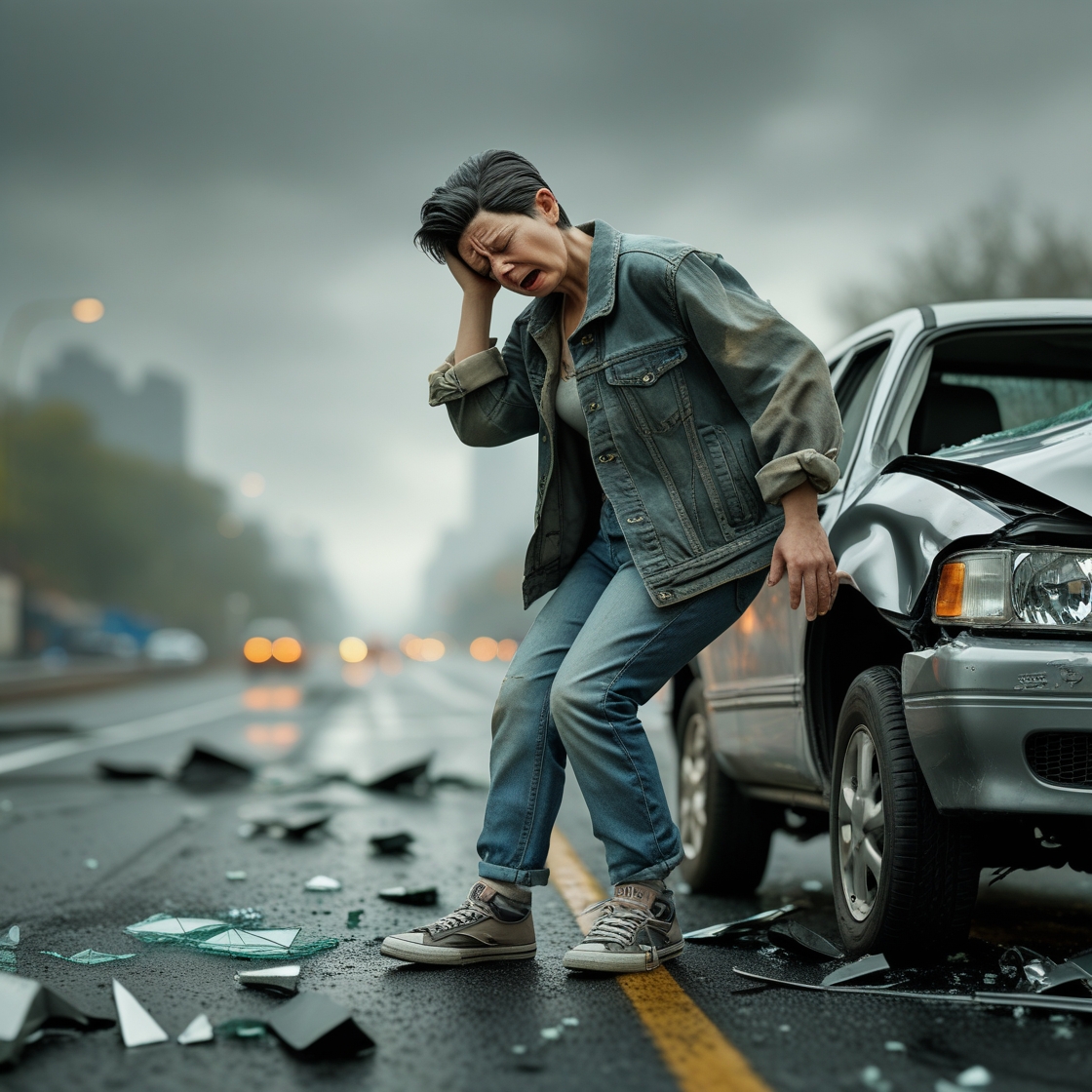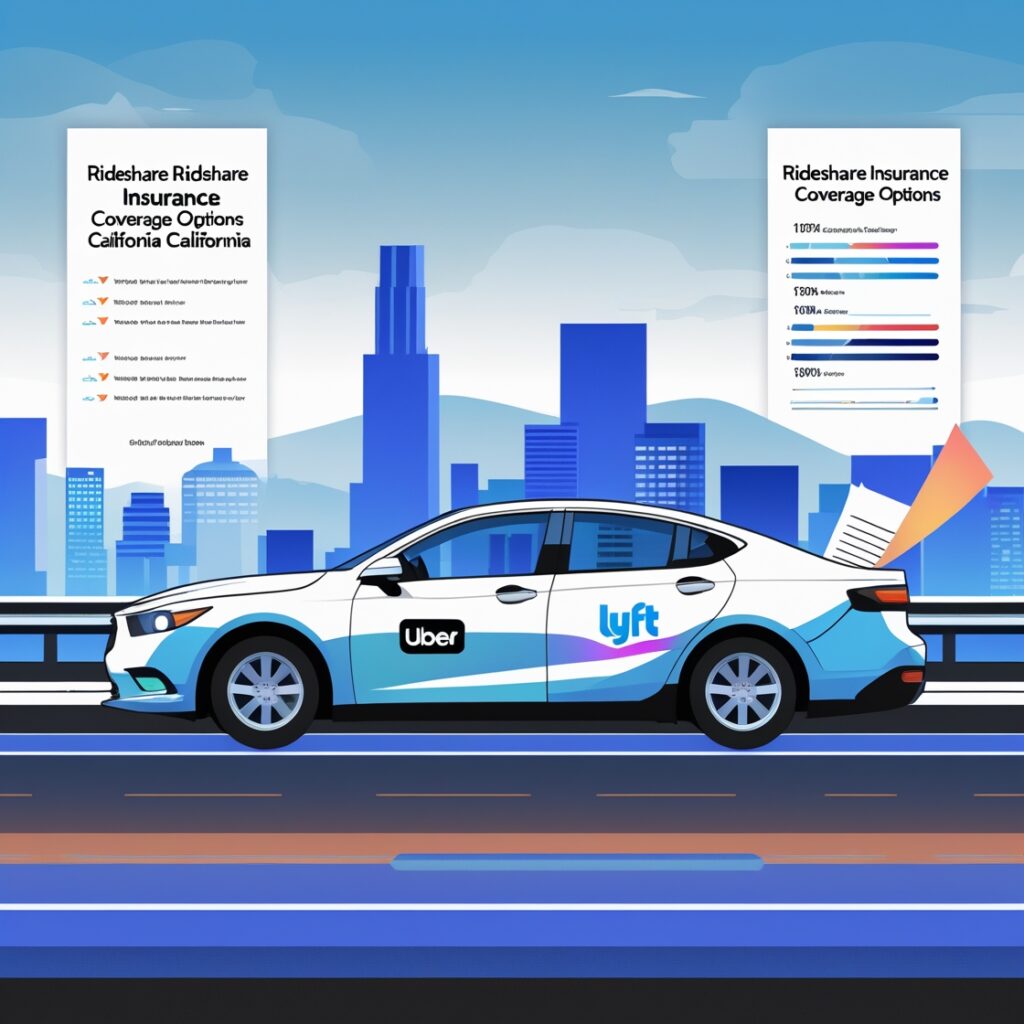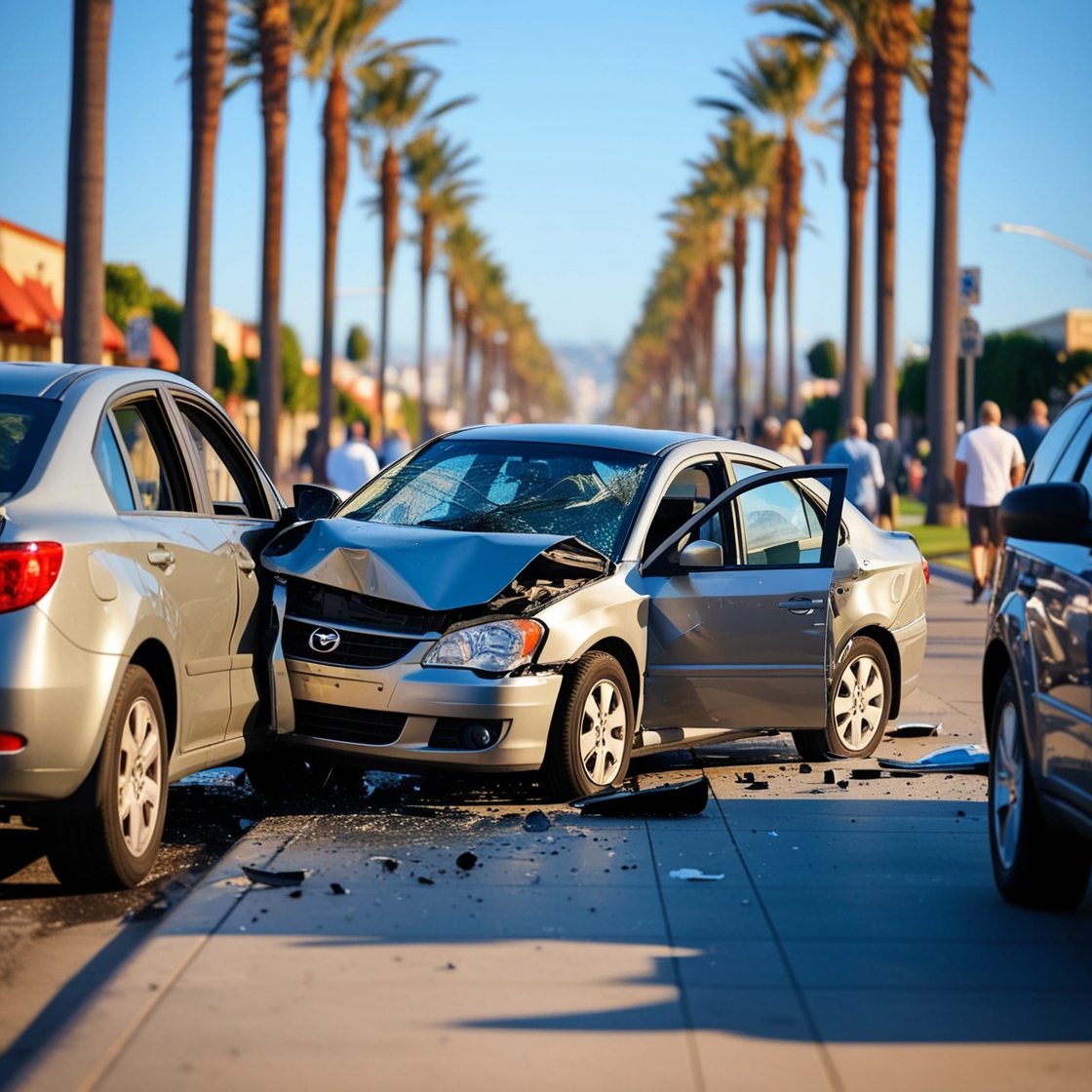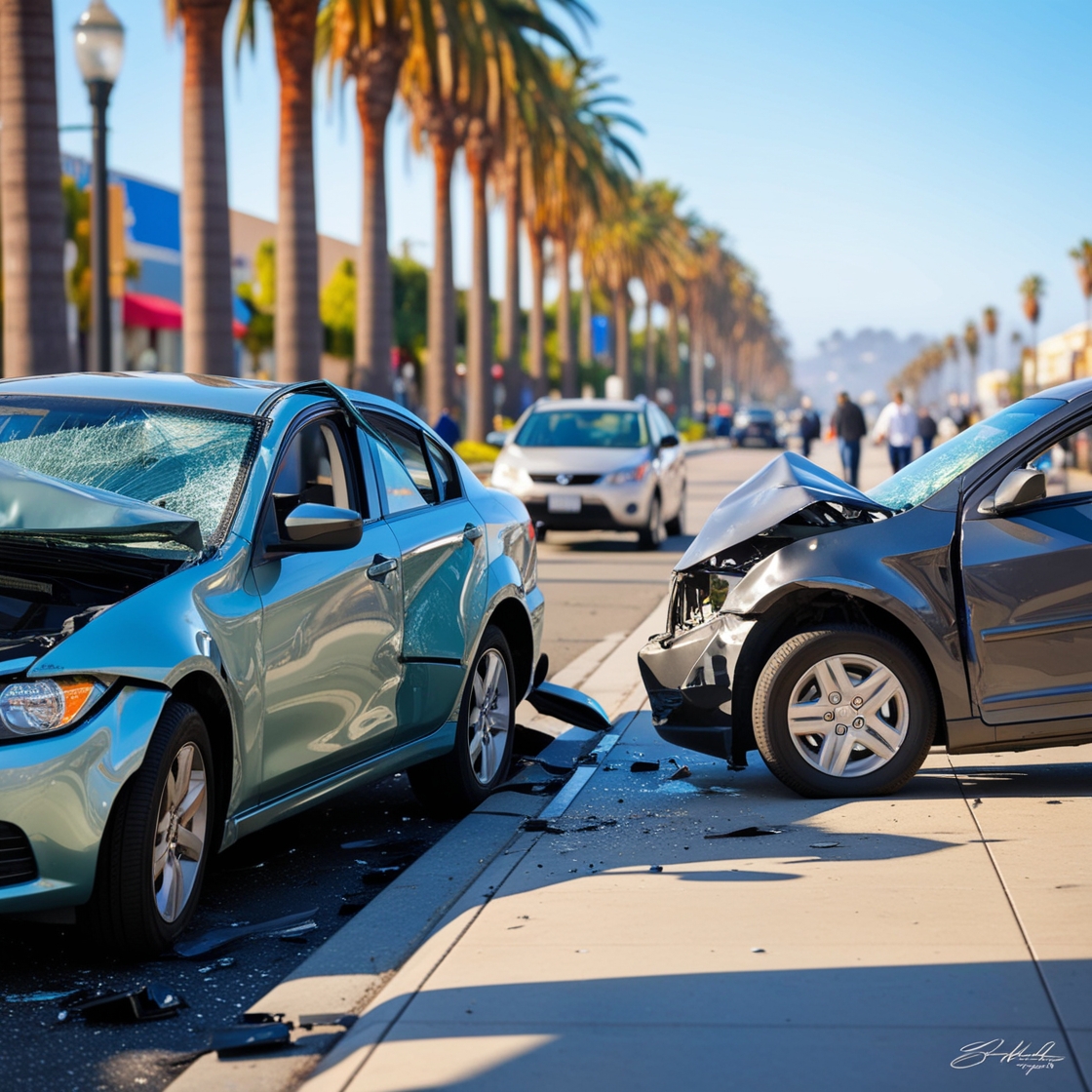
Injured While Driving for Uber or Lyft? Understanding Your Legal Rights in San Diego
Rideshare Driver Injury Lawyer San Diego California
The rideshare revolution has transformed how San Diegans get around our beautiful coastal city. With thousands of Uber and Lyft drivers navigating our busy streets—from the Gaslamp Quarter to La Jolla and everywhere in between—these services have become an integral part of our transportation ecosystem. However, with this convenience comes an unfortunate reality: rideshare accidents happen with alarming frequency on San Diego’s congested roadways.
As experienced San Diego rideshare accident attorneys, we’ve witnessed firsthand the unique challenges that Uber and Lyft drivers face after being injured while on the job. The complex web of insurance policies, employment classification issues, and determining liability can make securing fair compensation exceptionally difficult. Whether you were actively transporting a passenger, en route to pick someone up, or simply logged into the app waiting for your next ride request, understanding your legal rights is crucial to protecting your physical and financial recovery.
This comprehensive guide addresses the most pressing questions rideshare drivers have after experiencing an injury on the job. Drawing from our years of representing San Diego’s rideshare community, we’ll walk you through the critical steps to take after an accident, explain the complicated insurance landscape, clarify your employment status considerations, and outline the compensation you may be entitled to receive.
The Unique Position of Rideshare Drivers in California
Before diving into the specifics of accident claims, it’s important to understand the distinctive legal position rideshare drivers occupy in California—particularly after the passage of legislation affecting gig workers.
Independent Contractors vs. Employees: The Evolving Legal Landscape
Historically, companies like Uber and Lyft classified their drivers as independent contractors rather than employees. This classification significantly impacted drivers’ access to benefits, including workers’ compensation coverage for on-the-job injuries. However, California’s legal landscape has evolved considerably in recent years.
In 2019, California passed Assembly Bill 5 (AB5), which established stricter criteria for classifying workers as independent contractors. This legislation potentially reclassified many rideshare drivers as employees, which would have entitled them to workers’ compensation benefits. However, in November 2020, California voters approved Proposition 22, which specifically exempted app-based transportation and delivery companies from AB5, allowing them to continue classifying drivers as independent contractors while providing some alternative benefits.
This complex and evolving legal framework creates significant confusion for injured drivers. While Proposition 22 requires rideshare companies to provide some accident insurance coverage, the protections don’t match the comprehensive benefits available through traditional workers’ compensation.
San Diego-Specific Considerations for Rideshare Drivers
San Diego presents unique challenges for rideshare drivers that can increase accident risks:
- High tourist volumes creating unpredictable traffic patterns, especially in areas like Downtown, Balboa Park, and coastal communities
- Military installations generating significant rideshare demand with drivers unfamiliar with base access procedures
- Cross-border traffic complications for drivers operating near the San Ysidro Port of Entry
- Special event congestion at venues like Petco Park, Snapdragon Stadium, and the San Diego Convention Center
- Coastal fog and other weather conditions affecting visibility on crucial thoroughfares
Understanding these local factors becomes important when establishing how road conditions or traffic patterns may have contributed to your accident.
What to Do Immediately After a Rideshare Accident in San Diego
The moments following an accident are critical, both for your physical well-being and the strength of any future legal claim. Follow these essential steps if you’re injured while driving for Uber or Lyft in San Diego:
1. Prioritize Safety and Seek Medical Attention
Your health comes first. If you’re seriously injured, remain still and wait for emergency services. For less severe injuries, move to a safe location if possible. Even if you believe your injuries are minor, seek medical attention promptly—some serious injuries, like concussions or internal bleeding, may not present immediate symptoms.
San Diego offers numerous quality emergency care options, including:
- Scripps Mercy Hospital
- UC San Diego Medical Center
- Sharp Memorial Hospital
- Palomar Medical Center
Document all medical visits and follow treatment recommendations precisely. This creates an official record connecting your injuries to the accident—crucial evidence for your claim.
2. Report the Accident Properly
Proper reporting is essential:
- Call 911: San Diego Police Department or California Highway Patrol will document the scene and create an official accident report—a vital piece of evidence.
- Report through the app: Both Uber and Lyft require accidents to be reported through their driver apps. Complete this step as soon as safely possible.
- Document the scene: If safely possible, take photos of vehicle damage, the accident location, relevant traffic signs, weather conditions, and your visible injuries.
- Exchange information: Collect contact and insurance information from all involved parties, including passengers.
- Gather witness information: Independent witnesses can provide crucial unbiased testimony.
3. Be Cautious About Early Communications
Be mindful about what you say and to whom after an accident:
- Avoid making statements about fault, even casual comments like “I didn’t see them” or “I’m sorry”
- Don’t provide recorded statements to insurance companies without legal advice
- Decline early settlement offers until you understand the full extent of your injuries
- Be cautious about social media posts that could be used to undermine your claim
4. Contact a San Diego Rideshare Accident Attorney
Given the complicated interplay between rideshare company policies, insurance coverage, and California law, consulting with an attorney who specializes in San Diego rideshare accidents is critical. An experienced lawyer can:
- Navigate the complex insurance coverage issues
- Protect you from common tactics used to minimize your claim
- Ensure proper documentation of all damages
- Handle communications with insurance adjusters
- Determine all potential sources of compensation
- Advocate for your maximum recovery

Understanding Rideshare Insurance Coverage in California
One of the most confusing aspects of rideshare accident claims involves determining which insurance policy applies. Coverage depends entirely on your driver status at the time of the accident.
The Three Periods of Rideshare Insurance Coverage
California law recognizes three distinct periods that determine insurance coverage for rideshare drivers:
Period 0: App Off Duty
When you’re not logged into the rideshare app, your personal auto insurance policy applies exclusively. Rideshare company insurance provides no coverage during this period.
Period 1: App On, Awaiting a Ride Request
This period begins when you log into the app and are waiting to accept a ride. This is often the most problematic coverage period. During this time:
- Uber and Lyft provide limited liability coverage (typically $50,000 per person for bodily injury, $100,000 per accident, and $25,000 for property damage)
- Personal injury protection or uninsured/underinsured motorist coverage is typically NOT provided by the rideshare companies during this period
- Your personal auto insurance may deny claims if you don’t have a rideshare endorsement
This coverage gap during Period 1 leaves many San Diego drivers vulnerable, especially considering the high medical costs in California.
Period 2: En Route to Passenger Pickup
Once you accept a ride and are en route to pick up your passenger, coverage increases significantly:
- $1 million in third-party liability coverage
- Uninsured/underinsured motorist coverage
- Contingent comprehensive and collision coverage (if you carry these on your personal policy)
- Temporary disability payments for lost income
Period 3: Passenger in Vehicle
This period covers the time from passenger pickup until dropoff, with the same coverage levels as Period 2:
- $1 million in liability coverage
- Uninsured/underinsured motorist coverage
- Contingent comprehensive and collision coverage
- Potential additional coverage for passenger injuries
Challenges with California Insurance Claims for Rideshare Drivers
Even with these coverage requirements, San Diego rideshare drivers often face significant challenges when filing claims:
- Insurance companies may dispute which coverage period applies at the time of the accident
- Multiple insurers might point fingers at each other, delaying your claim
- Coverage for your own injuries varies dramatically depending on the accident circumstances
- High deductibles (often $1,000-$2,500) must be paid before collision coverage kicks in
- Temporary disability payments are typically insufficient to replace lost income
Common Injuries Sustained by Rideshare Drivers
San Diego rideshare drivers experience a range of injuries that can vary in severity and recovery time. Understanding these common injuries helps in pursuing appropriate compensation.
Physical Injuries
The physical toll of rideshare accidents often includes:
- Whiplash and neck injuries: Often occurring in rear-end collisions, these can cause long-term pain and mobility issues
- Back and spinal injuries: From herniated discs to more severe spinal cord damage
- Head trauma and concussions: Even “mild” traumatic brain injuries can have lasting cognitive effects
- Broken bones and fractures: Particularly common in side-impact collisions
- Soft tissue injuries: Including sprains, strains, and tears that may require extensive physical therapy
- Internal injuries: Which may not be immediately apparent but can be life-threatening
- Burns: In severe accidents involving fire or airbag deployment
- Cuts and lacerations: From broken glass or vehicle components
Psychological Impacts
The psychological toll of rideshare accidents is often overlooked but can be equally debilitating:
- Post-traumatic stress disorder (PTSD)
- Anxiety about returning to driving
- Depression resulting from physical limitations or financial stress
- Sleep disturbances and nightmares
- Reduced quality of life
These psychological impacts deserve the same serious attention as physical injuries in your claim.
Determining Liability in San Diego Rideshare Accidents
Establishing who is legally responsible for your injuries is essential to recovering compensation. Liability in rideshare accidents often involves multiple parties:
Potential Liable Parties
Depending on the circumstances, liable parties might include:
- Other drivers: The most common liable party in rideshare accidents
- Rideshare companies: While these companies try to limit liability, they may be responsible in certain situations
- Vehicle or parts manufacturers: If mechanical failures or defects contributed to the accident
- Government entities: If poor road design or maintenance played a role
- Third-party contractors: Including mechanics who performed inadequate repairs
Proving Negligence in California
To recover compensation in most San Diego rideshare accident cases, you must establish four elements of negligence:
- Duty of care: The at-fault party had a legal obligation to drive safely
- Breach of duty: They violated that obligation (through speeding, distraction, etc.)
- Causation: Their breach directly caused the accident
- Damages: You suffered actual injuries or losses as a result
California follows a “pure comparative negligence” system, meaning you can recover compensation even if you were partially at fault, though your award will be reduced by your percentage of responsibility.
Compensation Available to Injured Rideshare Drivers
If you’ve been injured while driving for Uber or Lyft in San Diego, you may be entitled to various forms of compensation:
Economic Damages
These quantifiable financial losses include:
- Medical expenses: Including emergency care, hospitalization, surgeries, medications, physical therapy, and future medical needs
- Lost income: Compensation for work missed during recovery
- Loss of earning capacity: If your injuries prevent you from returning to rideshare driving or limit your ability to work in the future
- Property damage: Covering vehicle repairs or replacement
- Out-of-pocket expenses: Including transportation to medical appointments, home modifications, or hired assistance
Non-Economic Damages
These more subjective losses are equally important:
- Pain and suffering: Physical discomfort and emotional distress
- Emotional trauma: Including anxiety, depression, and PTSD
- Loss of enjoyment of life: When injuries prevent participation in previously enjoyed activities
- Permanent disability or disfigurement: Compensation for lasting physical changes
Calculating Fair Compensation
Determining appropriate compensation involves numerous factors:
- Severity and permanence of injuries
- Impact on your ability to work
- Estimated future medical needs
- Pain levels and duration
- Psychological impact
- Effect on daily activities and quality of life
- Financial and emotional burden on your family
An experienced San Diego rideshare accident attorney will consider all these factors when valuing your claim.
Special Considerations for San Diego Rideshare Drivers
Several factors unique to San Diego and California law affect rideshare accident claims:
California’s Statute of Limitations
In California, you generally have two years from the date of the accident to file a personal injury lawsuit. Missing this deadline typically means losing your right to compensation, regardless of how strong your case might be.
For claims against government entities (like accidents involving municipal vehicles or caused by road defects), you must file an administrative claim within six months.
Proposition 22’s Impact on Benefits
As mentioned earlier, Proposition 22 creates a unique framework for California rideshare drivers. While it provides some benefits—including an earnings guarantee and a healthcare stipend for qualifying drivers—it doesn’t offer the same protections as employee status.
Under Prop 22, rideshare companies must provide occupational accident insurance that includes:
- Medical expense coverage (up to at least $1 million)
- Disability payments (55% of weekly earnings)
- Survivor benefits for fatal accidents
However, these benefits may be insufficient to cover extensive injuries or long-term disabilities.
Rideshare Endorsements on Personal Insurance
Given the coverage gaps discussed earlier, San Diego rideshare drivers should strongly consider adding a rideshare endorsement to their personal auto insurance policies. These endorsements typically:
- Provide coverage during Period 1 (logged in but awaiting a ride request)
- May lower deductibles for periods covered by rideshare company insurance
- Often cost only $10-20 per month
- Prevent potential policy cancellation for undisclosed commercial use
The Legal Process for San Diego Rideshare Injury Claims
Understanding the typical timeline and process for rideshare injury claims helps set realistic expectations:
Initial Investigation and Demand
After retaining an attorney, they will:
- Conduct a thorough investigation of the accident
- Gather evidence including police reports, witness statements, and camera footage
- Consult with medical experts about your injuries and prognosis
- Calculate the full value of your damages
- Prepare and send a demand letter to relevant insurance companies
Negotiation and Settlement Discussions
Most rideshare accident claims are resolved through negotiations:
- Insurance adjusters typically respond to demands with lower counteroffers
- Multiple rounds of negotiation often occur
- Settlement conferences may be scheduled
- Mediators sometimes facilitate agreements in complex cases
Litigation When Necessary
If fair settlement cannot be reached, your attorney may file a lawsuit:
- Formal legal proceedings begin with filing a complaint
- Discovery process includes document exchanges, written questions, and depositions
- Expert witnesses may be retained to testify about medical issues or accident reconstruction
- Trial preparation involves extensive strategic planning
- Most cases settle before reaching trial, but having an attorney ready for court strengthens your position
Timeline Considerations
While every case is unique, typical timeframes include:
- Initial investigation: 1-3 months
- Treatment and medical documentation: Varies by injury severity (3 months to 1+ years)
- Negotiation phase: 2-6 months
- Litigation (if necessary): 1-2+ years
The time investment is substantial, but rushed settlements often leave significant compensation on the table.
Common Questions from Injured San Diego Rideshare Drivers
Through our years representing injured Uber and Lyft drivers, certain questions arise frequently:
Can I still receive compensation if I was partially at fault?
Yes. California’s pure comparative negligence system allows recovery even if you were partially responsible for the accident. Your compensation will be reduced by your percentage of fault, but not eliminated entirely.
For example, if your total damages are $100,000 and you’re found 20% at fault, you could still recover $80,000.
What if the other driver is uninsured?
If you’re in Period 2 or 3 (accepted a ride or have a passenger), the rideshare company’s uninsured/underinsured motorist coverage should apply. However, if you’re in Period 1 (app on but awaiting a request), coverage depends on whether you have a rideshare endorsement or uninsured motorist coverage on your personal policy.
Will filing a claim affect my ability to drive for Uber or Lyft?
Filing a legitimate injury claim should not impact your eligibility to drive for rideshare companies. However, if the accident resulted in serious moving violations or raised concerns about your driving record, the companies might separately review your eligibility based on their safety standards.
How long can I receive disability payments after a rideshare accident?
Under Proposition 22’s occupational accident insurance requirements, disability payments typically continue for up to 104 weeks (two years). However, these payments are limited to 66% of your average weekly earnings, up to a maximum amount, and may not fully replace your lost income.
Should I accept the insurance company’s first settlement offer?
Almost never. Initial settlement offers typically fall far below the true value of your claim, especially before the full extent of your injuries and recovery time is known. Consult with an experienced San Diego rideshare accident attorney before accepting any settlement.
Preventing Rideshare Accidents: Safety Tips for San Diego Drivers
While legal remedies exist after accidents occur, prevention remains the best approach:
Vehicle Maintenance and Safety
- Maintain your vehicle according to manufacturer recommendations
- Regularly check tires, brakes, lights, and other safety equipment
- Consider dashcams that record both exterior and interior activity
- Keep emergency supplies and first aid kits accessible
Safe Driving Practices
- Use hands-free devices for necessary communication
- Secure the rideshare app before driving; never manipulate it while in motion
- Take regular breaks to prevent fatigue, especially during long shifts
- Be particularly cautious in San Diego’s high-risk areas like I-5/I-8 interchange, SR-163 through downtown, and busy tourist districts
Passenger Management
- Require passengers to use seatbelts
- Refuse service to visibly intoxicated or belligerent individuals
- Trust your instincts about potentially dangerous situations
- Report problematic passengers through the app
Knowledge of High-Risk Areas and Times
Data shows certain San Diego locations have higher accident rates:
- Downtown entertainment districts on weekend nights
- Beach communities during summer months
- Major sporting event venues during entry/exit times
- Airport pickup zones during peak flight arrival times
Being extra vigilant in these areas can reduce your accident risk.
Conclusion: Protecting Your Rights After a Rideshare Accident
Being injured while driving for Uber or Lyft in San Diego creates a uniquely challenging situation. The complex interplay between rideshare company policies, insurance coverage periods, and California’s evolving gig worker laws can make securing fair compensation difficult without proper legal guidance.
Remember these key points:
- Your employment classification impacts available benefits but doesn’t eliminate your right to compensation
- Insurance coverage varies dramatically depending on your status in the app at the time of the accident
- Prompt medical attention and thorough documentation strengthen your claim
- The statute of limitations gives you limited time to pursue compensation
- Experienced legal representation levels the playing field against powerful insurance companies
By understanding your rights and taking appropriate action after an accident, you can focus on what matters most—your recovery and financial stability—while your legal advocate handles the complexities of your claim.
Why Choose Our San Diego Rideshare Accident Attorneys
Credible Law specializes in representing injured rideshare drivers throughout San Diego County. We bring:
- In-depth knowledge of rideshare company policies and insurance structures
- Familiarity with San Diego’s roadways, medical facilities, and court system
- Experience negotiating with both personal and commercial insurance carriers
- A proven track record of maximizing compensation for injured drivers
- Compassionate understanding of the financial and emotional toll accidents take
If you’ve been injured while driving for Uber or Lyft, contact our San Diego office today for a free, no-obligation consultation to discuss your case and explore your options for recovery.
This article provides general information and should not be construed as legal advice for any individual case or situation. An attorney-client relationship is not created through this article. Every case presents unique facts and legal issues that should be discussed with a qualified attorney.


